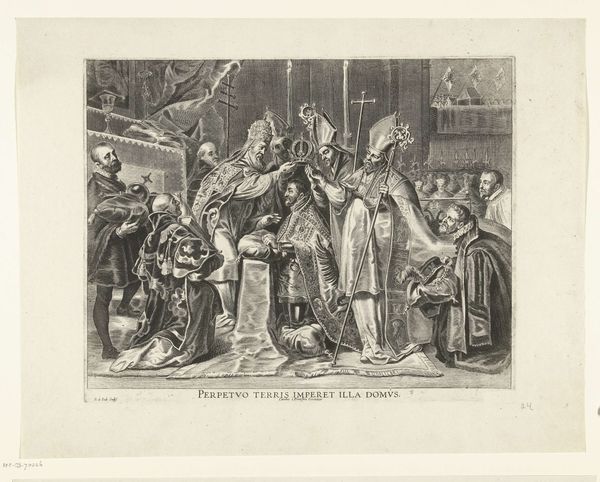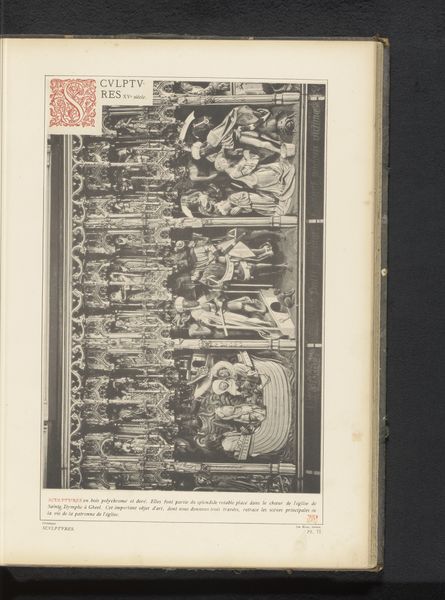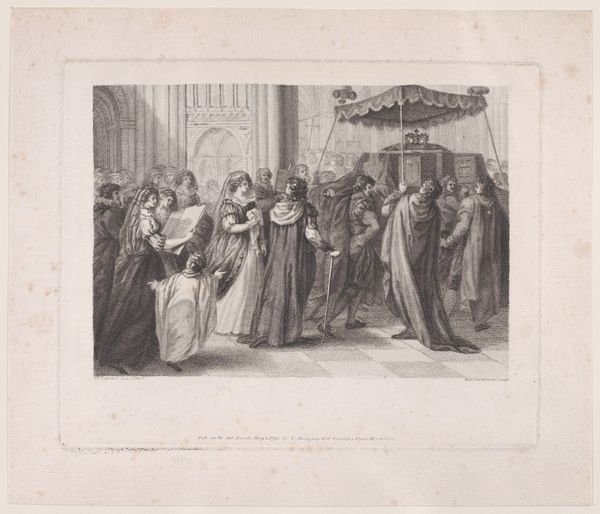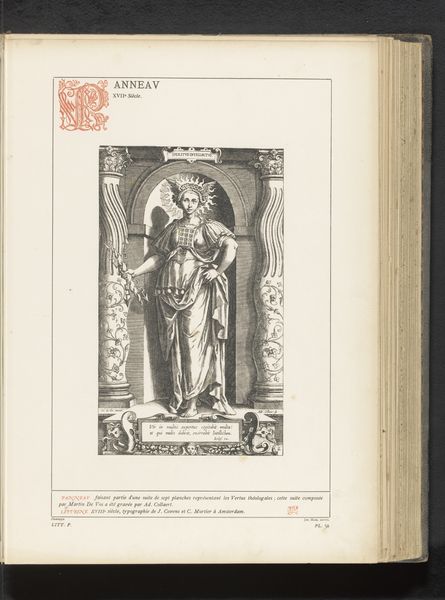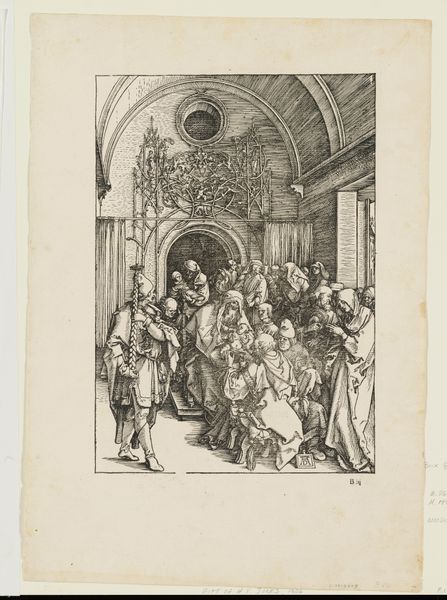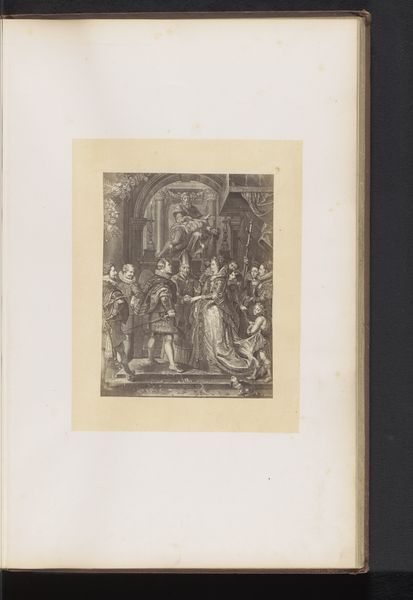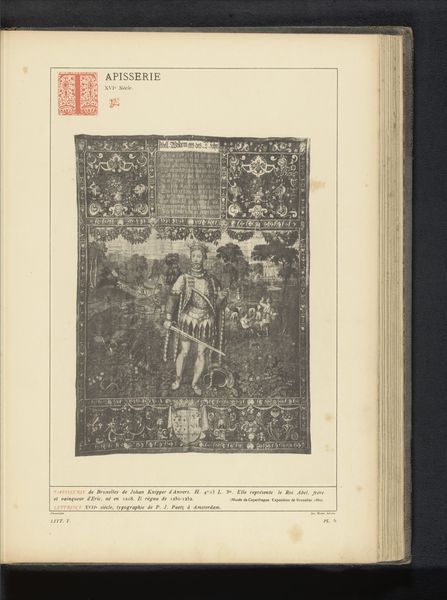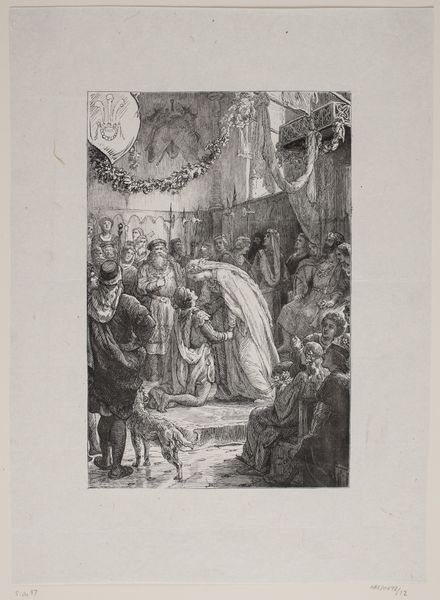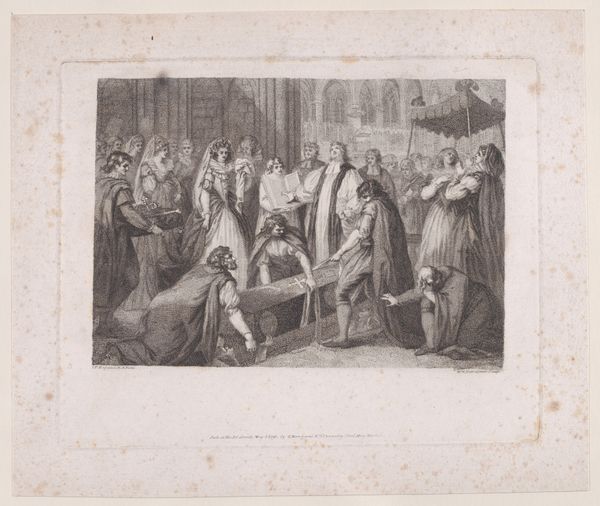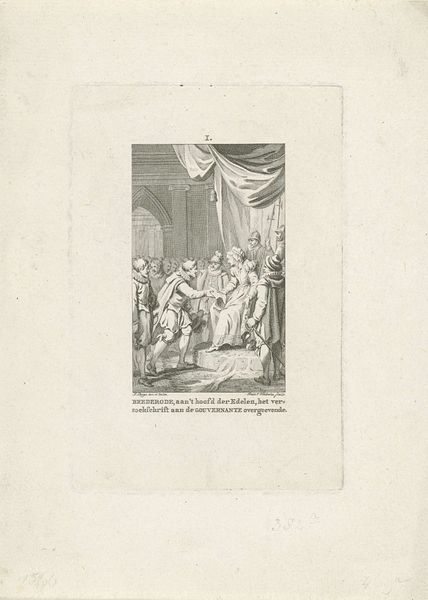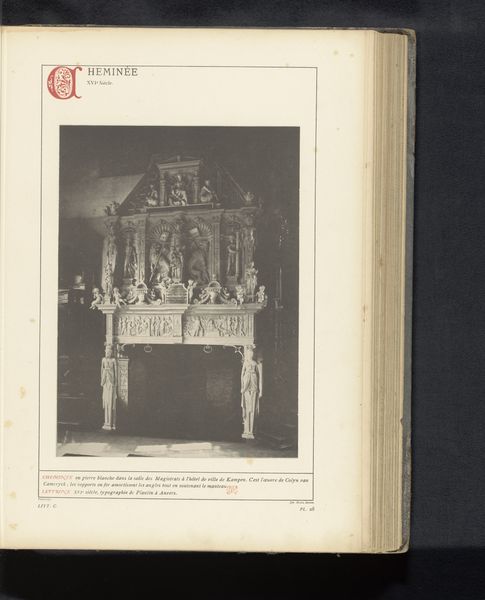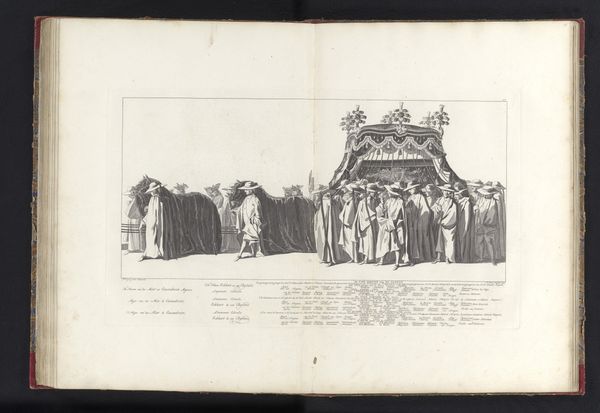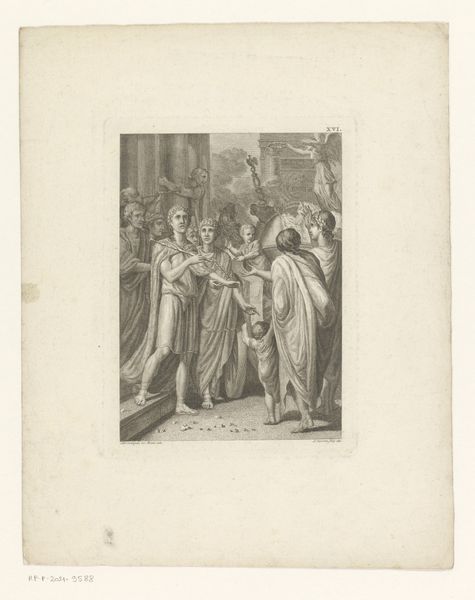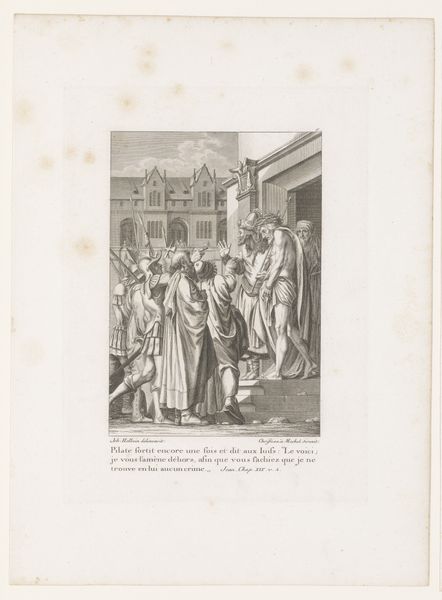
Brussels wandkleed met een koning en een koningin omringd door hun hofhouding before 1887
0:00
0:00
print, engraving
#
medieval
#
narrative-art
# print
#
group-portraits
#
line
#
history-painting
#
engraving
Dimensions: height 291 mm, width 215 mm
Copyright: Rijks Museum: Open Domain
This Brussels tapestry depicts a king and queen amidst their court, but the date and artist remain unknown. Tapestries in the fifteenth century weren't just decoration, they were potent symbols of power and status. Brussels, in particular, became a key center for tapestry production, driven by the economic structures of the time. These tapestries often depicted courtly life and historical or mythological scenes, reflecting the values and interests of the ruling classes. The level of detail and the costly materials used – often including gold and silver threads – meant that owning such a tapestry was a clear statement about wealth and influence. By studying such objects, alongside archival documents and social histories, we can start to understand the complex interplay between art, power, and society in the past. This tapestry isn't just an image; it's a window into a world of social hierarchies, cultural values, and political ambition.
Comments
No comments
Be the first to comment and join the conversation on the ultimate creative platform.
